
Last month, The Tyler Loop published “Why these East Texans said no to religion,” featuring six local residents who stepped away from a faith in favor of identifying themselves as agnostics, humanists and spiritual-but-not-religious. Four of the six interviewees asked to remain anonymous for fear of social and professional backlash.
Here, The Loop turns to religious devotees. Tyler’s religious rating soars at 73.2%, more than 15% higher than Texas’ overall religious rating.
In a land abounding with churches, church-affiliated coffee shops, Christian-themed breweries and 245 Christian nonprofit organizations, who are Tyler’s religious devotees?
Ten interviewees from their 20s to late 80s told us why they are devoted to their faith, and how it helps them. In contrast to our nonreligious piece, these interviewees happily shared their names and details about their faith tenets and practices.
Read on to discover Tyler’s Catholic-Baptist-Hindu-Jewish-Disciples of Christ-Baha’i-Muslim-Church of Jesus Christ Latter Day Saints-Church of God in Christ neighbors devoted to their faith.
Don Walker, Southern Baptist
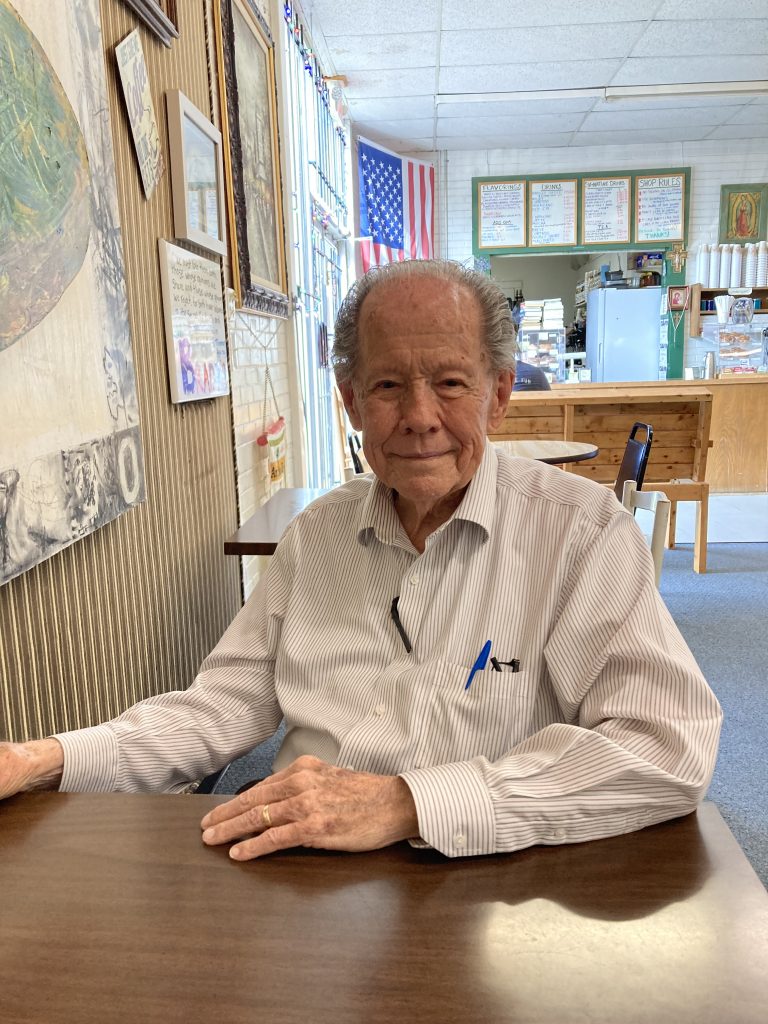
Dr. Don Walker, 87, was born in Tyler and practiced psychology in private practice for 50 years. He continues working part time. Walker grew up Methodist, attending Cedar Street Methodist Church in North Tyler. He converted to the Baptist denomination at the age of 15 after attending a revival, and has attended First Baptist Church in Tyler since 1969, where he has served as Sunday school teacher.
Walker said one thing he enjoys about being Southern Baptist is the concept of the priesthood of the believers. “There are Baptist churches, but there is no The Baptist Church. Each congregation is a law onto itself. I like that,” said Walker.
Walker said his faith was tested like never before this year. “I had some serious problems earlier this year, and it was at the point of death a couple of times. I was very pleased to know that was perfectly all right; I was completely content in my faith. There was no fear at all.”
Walker addressed his concerns about changes in his faith tradition. “Some of our traditions I am seeing slip away concern me greatly. I do feel there is a lack of understanding.
“I believe that a lot of the current political issues are predicated on a misconception of the nature of man. I believe the Bible very plainly tells us that man is fallen; is a sinner.
“I really wish there was an appreciation of the Bible. When I was a child, when a person made a comment about the Bible, it was held in high regard. And I feel like nowadays, it is nearly disregarded,” he said.
Walker sees a concerning shift in thinking in recent times. “I think people were willing to accept responsibility more back in the past. There’s been a progression, a lack of firstborn responsibility. I think that’s bad.”
Conversely, Walker is pleased with some tenets of his faith that remain central in Baptist church culture. “I appreciate the evangelical thrust in our church. They believe in conversion and the belief that people who accept the gospel become a Christian. [Also] the appreciation of the Bible as the word of God, that has not changed.
“The priesthood of the believer, as I’ve said, is a very important thing for me, because it allows for each person to be responsible.”
Walker said fellowship and care for one another, especially as congregants age and have health issues, abounds at First Baptist Church. “There’s a camaraderie. There’s a feeling of fellowship in our church among the members that I appreciate.”
Walker’s favorite Old Testament passage is Psalm 23. His favorite New Testament Bible verse is John 3:16. As for hymns, “Rock of Ages,” “Onward, Christian Soldiers” and “Victory in Jesus” hold a special place.
Walker, who studied Greek, said he has many Bible translations in his home library. “The one that will be read at my funeral is John 3:16, King James Version.”
Lali Quiballo, The Church of Jesus Christ of Latter Day Saints
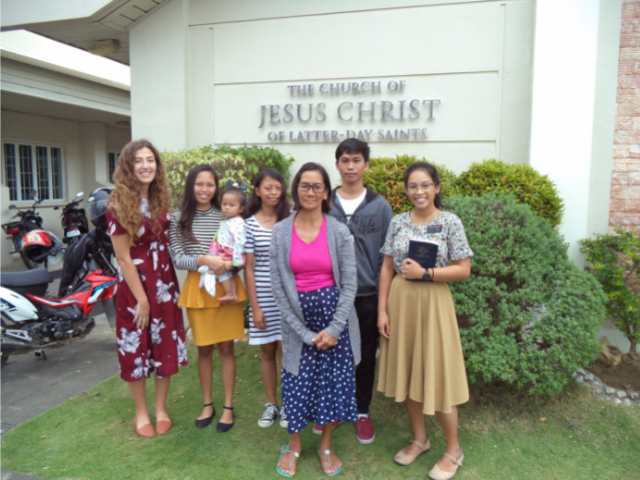
Lali Quiballo, 22, was born into a Mormon family in Utah, but grew up in Tyler.
“I was born into [my faith], and I was surrounded by that culture in Utah. I moved to Tyler, Texas, and I was surrounded by people of all different types of faith. Most of my friends were honestly Christian and it was very cool to be able to visit their churches … and enjoy the youth activities.
“But I have been devoted to the church of Jesus Christ of Latter Day Saints because that’s where I feel that Christ is.”
After high school, Quiballo began college at the University of Southern California, but felt pulled to serve in a mission with the Church of Jesus Christ of Latter Day Saints.
“I did some training here in the states, learning a little bit of Tagalog and what it takes to be like a Christlike teacher. I learned some basics and then I flew out to the Philippines and lived there for about 18 months.”
Quiballo said two holy books hold a special place in her life and faith. “When I read the Bible, I love it; I believe in it so fully. But when I read the Book of Mormon, another testament of Jesus Christ, I also feel the spirit so strongly. When I read (the Book of Mormon), I feel like the truths were written just for me.”
Although Quiballo sees room for change in how her church operates, she said the teachings of Christ are perfect. “But because obviously the Church of Jesus Christ of Latter Day Saints is a religion here on earth that tries to implement the gospel of Jesus Christ, we implement it as imperfect human beings.
“Something I definitely hope we all come to understand and grow in as members of the Church of Jesus Christ, but also people at large, is probably the treatment of LGBTQ+ community — just being more accepting, more loving, more understanding, more empathetic.
“Obviously it’s a heteronormative population within the Church of Jesus Christ of Latter Day Saints. More and more people, especially the young people, they’re coming forward and being honest with their identities and their sexualities and their gender.
“We can surely follow Christ’s example and love everyone and be able to make room and space for them to live the gospel of Jesus Christ as they will.”
Kashif Alauddin, Islam
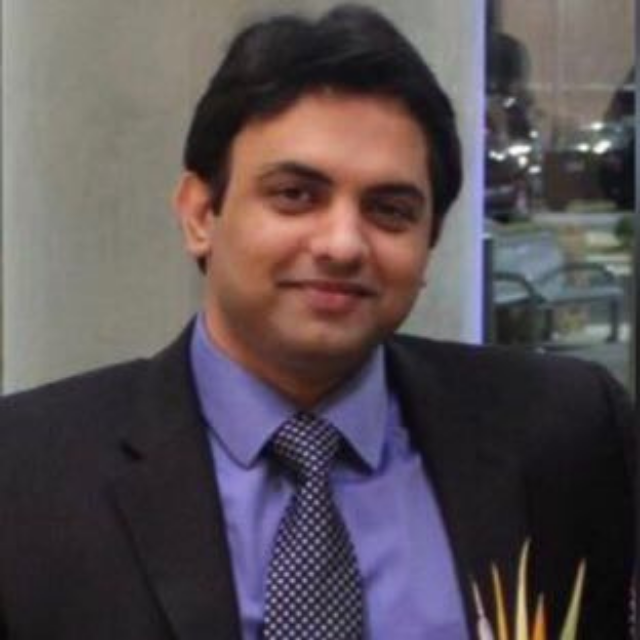
Dr. Kashif Alauddin, 44, is a medical doctor who belongs to the Islamic faith. Originally from Pakistan, he has lived in Tyler since 2012. Although Alauddin was born into a Muslim family, his move to the U.S. prompted him to understand more about his faith tradition.
“I used the teachings to lead my daily life and it really gave me a sense of spiritual well being and peace.”
Alauddin said there are five pillars of Islam: a profession of faith, prayer, giving of alms, fasting and pilgrimage. “I appreciate each and every one of the pillars, and it has a profound effect on the life of a Muslim daily, monthly and yearly,” Alauddin said
Concerning fasting, Alauddin recounts the benefits. “When you fast the entire month, it brings tremendous health benefits as your body goes into a ketotic state … It not only helps you lose weight, but also reminds you of the hunger pangs of the needy,” he said.
Alauddin said Islam is a complete way of life, wherein success is possible in this world and the hereafter, when believers follow the true spirit of Islam. Alauddin said he would rather change himself than any part of his faith. “The only thing I would change is myself, to practice Islam in its entirety, to read the Quran and help spread tolerance and love amongst people of different faith and culture.”
Alauddin said he feels blessed to have two mosques in Tyler and a Muslim cemetery. Referencing the organization “Tyler Supports Our Muslim Neighbors,” Alauddin encourages residents to visit the annual open house, during the Ramadan holiday. “Can you imagine a rabbi, pastor and imam together on the stage answering all the questions we always wanted to ask?”
Alauddin hopes for a future focused on unity and relationships. “In the end, I sincerely believe we should come together as a community and get to know our neighbors personally. There is a lot of misinformation out there and it drives us apart.”
Sheryl Chester, The Christian Methodist Episcopal Church
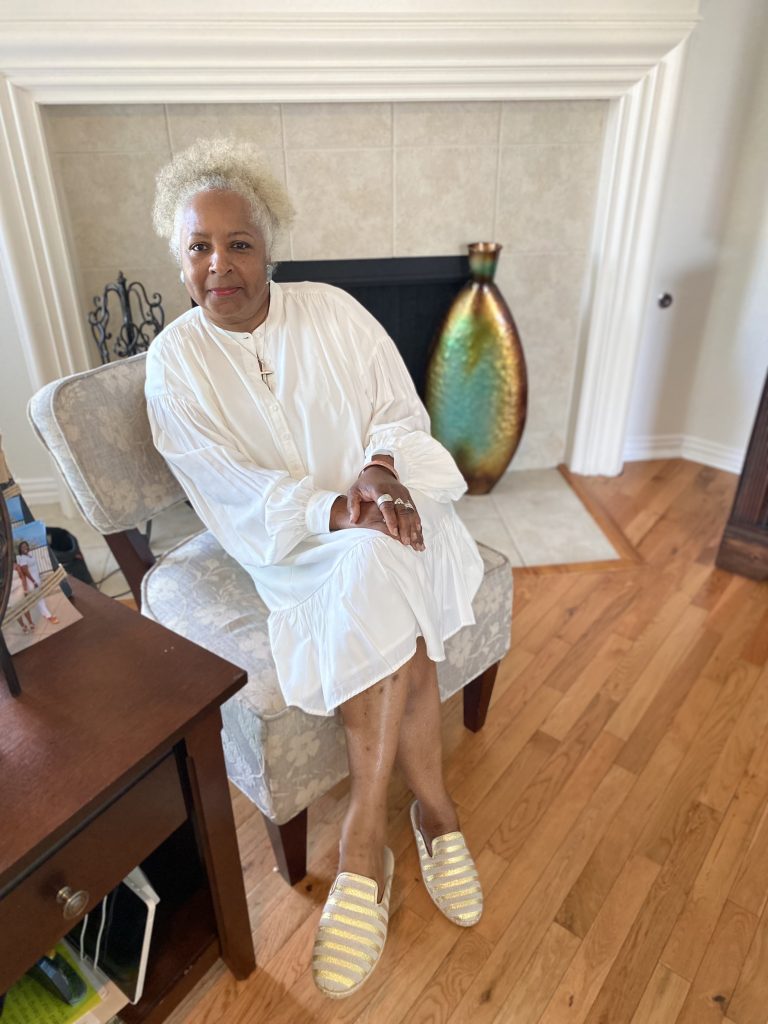
Sheryl Chester, 67, grew up in Prairie Creek, a community near Edom, Texas. Chester is now a member of True Vine Baptist Church in Tyler, but her roots in the Christian Methodist Episcopal (CME Church) of Prairie Creek have left a lifelong impression.
“My mother would have me take the Bible out and read to her all of these verses and chapters. Now, the words have I hidden in my heart, that I may not sin against thee.
“When we came back home [from church], my mother got this old piano. We would get around the piano, she would play and my daddy would pick on the guitar. And we sang all of those hymns: “Oh, How I Love Jesus” or “I Need Thee Every Hour” — songs of inspiration.
Chester recalls what her upbringing means to her. “Prairie Creek is my foundation. My foundation is God. I am so thankful for my background. They injected me, they infused me with the word. They pollinated my life with God’s sweet nectar, and I have a potpourri of precious memories of the people who love me and what they injected into me,” Chester said.
Chester’s faith continues to be an anchor in her life throughout the decades. “If it were not for my faith, if it were not for those songs, if it were not for those verses [like] Romans 8:28 … I would not know how to function. I can’t afford not to serve God.”
Chester’s faith has deep implications for her self-understanding. “I love my God. You know why? Because he said he created me in his image. Therefore, I am beautiful. I am not defined by another vapor, another piece of clay.”
A retired Tyler elementary school teacher of over 30 years, Chester said she enjoyed the role of her faith in her profession. “During that time as a teacher, we could talk about God. You could discipline.You could say [to students’ families], ‘Hey, come on now, you’re better than that. Let’s get into the word.’ And teaching was also a way of becoming a missionary, because you get to be the good Samaritan.”
Her early years in Prairie Creek remain with Chester. “I go back to Prairie Creek and my mind runs back and forth. It trickles like the Prairie Creek. There are tears that stream down my eyes when I think about life itself. I am who I am because the word was injected into me as a child.”
Chester said free will means potential eternal consequences. “You have a covenant, you have free will to do what you want. But there are consequences. If you don’t accept the gift of salvation, you will spend eternity in hell.”
Chester fondly remembers a time when prayers and scriptures were part of family meals and holidays. “Used to, at Christmas, we had a big family gathering. Somebody said the blessing, and we all said a verse. We’ve gotten away from there. We’re so fancy now, so therefore our children don’t know those verses; our grandchildren often don’t know those verses.”
Dave Maland, Disciples of Christ
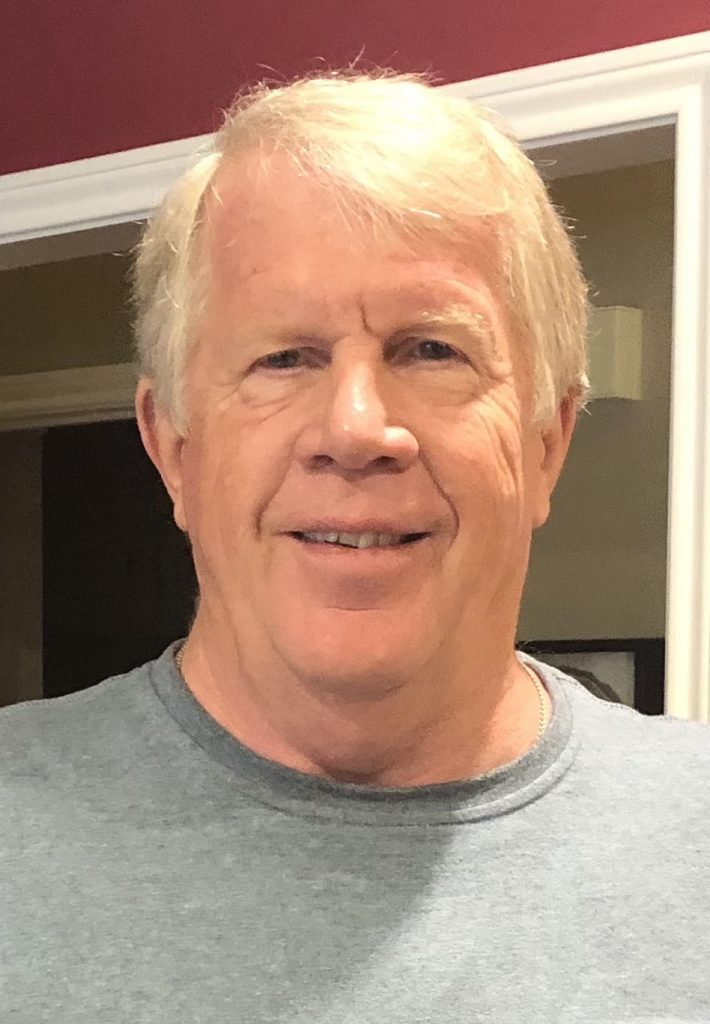
Dave Maland, 69, is a retired clerk of the United States District Court for the Eastern District of Texas. He grew up in the Lutheran Church in Minnesota and has been a member of First Christian Church in Tyler since 1996.
With a new marriage and blended family with four children, Maland’s friend recommended First Christian Church. Maland was impressed. “They came and visited us and it was like, ‘Wow, they’re really interested in us.’ They turned out to have a great youth program.
“I learned about the denomination. The Disciples of Christ, we’re kind of an offshoot of the Presbyterian Church back in the early 1800s. They were rebelling against factionalism amongst Christian churches.”
Maland said authors and mentors have made an impact in his faith, including Stephen Covey, C.S. Lewis, Francis Collins, Richard Rohr and Ann LaMott. He also enjoys the Bible. “I like reading the Bible. I think it’s the inspired word of God, but I can’t take it hook, line and sinker. There’s some things I just don’t spend as much time cogitating about.”
Music also has been an avenue for Maland to connect at First Christian. “I’m in the praise band at my church. I love playing Christian music, particularly contemporary Christian. I play with a lot of younger people than myself. I play keyboard; I love it. I play with some tremendous musicians at church.”
Maland and his wife found a new way to lean on their faith after several family deaths, including their 22-year-old son, Joe. “My wife and I have been heading up the GriefShare program at our church for like a decade.I never grow tired of it.
“Grief is tougher than most people think. You just don’t wave a wand and it goes away within a few weeks, particularly if there are people that you either had problems with or that you deeply loved, like we did with Joe.”
At this stage in his life, Maland feels more sure and grounded. “I feel very blessed to have found the Disciples [of Christ], and I don’t really think I would change much of anything other than change myself.
“I know where I need to go, which is wonderful at my stage of life. At an earlier stage of life, I was still questioning even the questions I was asking. Now, people have shown me the way, and that’s how I need to live my life here for the rest of the time I’ve got on the earth.”
Shruti Patil, Hinduism
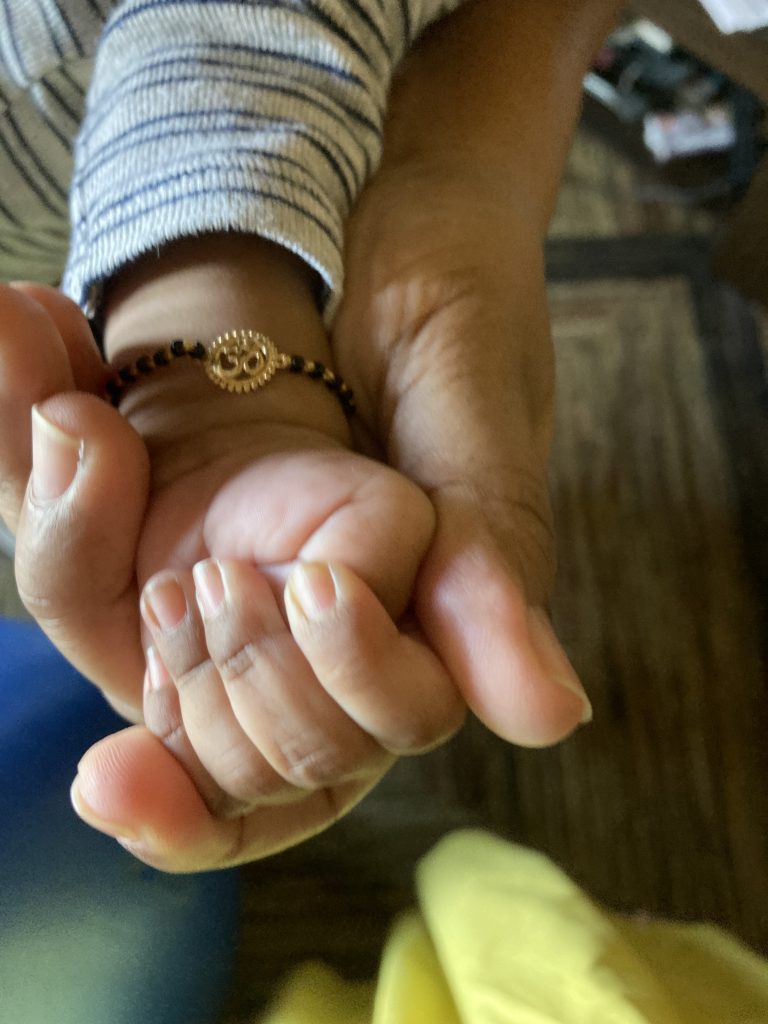
Shruti Patil, 31, was raised in a Hindu family in Hyderabad, south central India. Patil said her family never prescribed what she could and couldn’t do as part of her religion. “Growing up, it was just more of a tradition rather than a religion. Most of it for me personally, related to hygiene and good conduct. I say Hinduism is a way of leading life rather than a religion. Most of it does have some kind of scientific reason behind it.”
Patil recounted the physical and mental benefits of various aspects of Hinduism. “For example, we visit temples, which are sacred places. Temples are structures which are strategically built. There are so many copper plates inscribed by Vedic scripts, placed beneath the idol.” Patil said the inscribed copper plates give out positive energy when worshippers walk around the idol in a clockwise rotation.
“And not only that. When you visit a temple, it calms you down automatically because of the holy chants going on. Those sounds are very relaxing for the human mind. And so it does act as a tranquil retreat center.”
“Not only that, it’s also a place where you learn. The holy chants are stories from our Vedic scripts. So you’re culturally growing and knowing your history. There is also a scope of skills like dancing, singing and music … painting and drama. You name it and you’ll find it in the temples.”
Sounds in the temple, too, play a role in promoting wellness. “The bell we ring in the temple goes for seven seconds and clears all the seven chakras of the body. It clears your mind.”
Additionally, incense sticks and holy water infused with basil, cloves and cardamom activate the senses. “It’s just a calm place where you relax and come out stress-free. It’s a good way to refresh yourself,” Patil said.
Patil laments that visiting a Hindu temple requires a trip to a larger city. “That is one thing I really miss in Tyler. There’s churches and mosques, but there are no temples in Tyler, which makes me really sad because we do have a considerable Hindu population. But right now we go to the metro cities like Houston, Dallas or Austin.”
The absence of a Hindu temple in Tyler as a common gathering place has made it more difficult for Patil to meet other Hindu people in East Texas. “That’s the reason we don’t even know many of the Hindu people or Indian people in Tyler. Having a place would really help me to get together with the community. And the little kids growing up here from the Hindu culture, they don’t really get to know a lot about it.”
Recently, Patil and her husband made an important trip to Dallas with their infant son. There, the priest chanted holy mantras. “[He asked] God to just bless our family and keep us away from any kind of evil eye and to have prosperity,” she said.
Patil and her husband are open to sharing religious spaces with other East Texans. “We have visited churches before. We even have visited a mosque. We have no problem doing that. I want (my son) to grow with that open mind, that you can go anywhere you like, but be aware of what your roots are as well.”
Davi Jones, Baha’i Faith
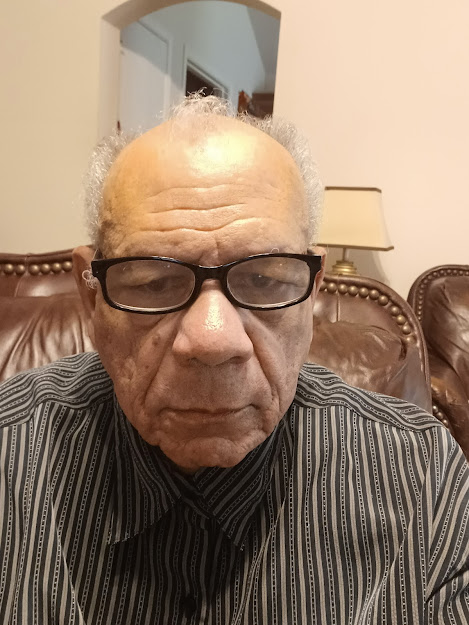
Davi Jones, 82, was raised in a Catholic home and became a member of the Baha’i Faith in 1969, with encouragement from his brother. He relocated to Tyler from Louisiana in 2005.
Jones was instantly attracted to Baha’i Faith’s principles. “One of the principles of my faith is independent investigation of truth. You research it, and you make your own decision,” he said.
Jones said other Baha’i tenets include the oneness of humanity, religions and God; the essential harmony of science; and the need for a world economic order, monetary system and universal language. “More importantly, what attracted me really was teachings on the unity of mankind, the unity of the races.”
Jones said the Baha’i religion began in 1844 in Iran with the appearance of Ali Muhammad, known as the Bab. He likened the Baha’i belief in progressive revelation to being in school, under the mentorship of different teachers at each grade level.
“We had an Abraham, we had a Moses, we had a Jesus, we had a Buddha, we had a Krishna, we had Muhammad, we had the Bab and in today’s, we have Baháʼu’lláh. And as each of these appear, they bring with them what humanity needs to move from one age to the next.”
Jones said humanity is moving toward a peak civilization. “We see humanity right now desperately looking for solutions, and we believe that solution can be found in what is offered by the Baha’i Faith. It’s going towards a golden civilization, actually. As all of these cultures begin to merge, the world is getting smaller.
“Man’s problem is spiritual, and he needs to come to terms with that and get rid of all of this cognitive dissonance. Religion simply means to organize, to come together. So why should we hold differences of color, differences of belief, differences of economic stature against each other?”
In 2005, Jones and his family fled to Tyler from Slidell, Louisiana, as Hurricane Katrina moved inland. Later, his family decided to relocate to Tyler permanently. They quickly found Tyler’s Baha’i Faith center on Northwest Loop 323.
“Being a Baha’i, you’re never alone, no matter where you go,” Jones said. “You’re going to find Baha’is. And you’re always welcome, because we are one human family.”
Alford Anderson, Church of God in Christ
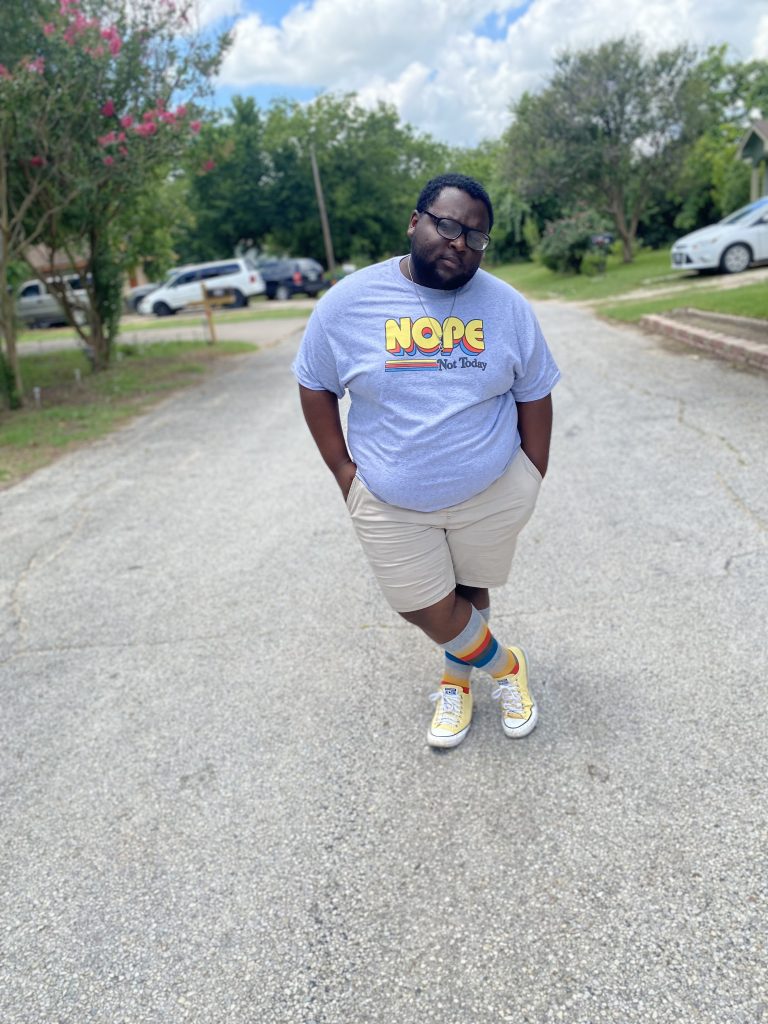
Originally from Terrell, Texas, Alford Anderson, 24, came to Tyler for school. A junior psychology major at the University Texas at Tyler, Anderson attends Jones Valley Church of God in Christ. From the beginning, Anderson felt at home.
“I visited my first Sunday here. It was everything I was looking for. You have a spirit led pastor, good leadership: Melton Timmons and First Lady Laqueta Timmons. It just felt like home the first time I got here.”
Anderson was drawn to the Bible-based focus on Jones Valley COGIC. “It’s an old school, Bible-led church. They believe in the do’s and don’ts of the Bible. I’ve been there three years and everything they do is strictly by the Bible.”
“I like Jones Valley because they welcome you with open arms. When I first came, I felt welcome. As soon as I opened the door, I felt welcome. (The pastor) said, ‘I think you’ll be a great asset to this church.’ It’s just about the love they show at Jones Valley.”
Anderson grew up in a Baptist church where services were energetic, but his experience with the COGIC denomination’s form of worship was something new. “People can start praising God, shouting as we call it. It just takes over the whole service at times. Sometimes, the pastor doesn’t even preach because the Holy Spirit just takes over the whole service.”
At first, Anderson was wary of what he saw. I was scared. I’m like, ‘What is going on here?’ People started screaming and falling on the floor.”
Since that moment, Anderson’s sister and pastors have explained those moments as the Holy Spirit.
Now, Anderson says he, too, has been a participant in COGIC worship. “Whenever it hits, it just hits. You just have to let him have his way. And soon, it just calms back down … just naturally like a roller coaster.”
Anderson said his faith, whether practiced in the Baptist or COGIC tradition, always has taken priority. “I know that my God is real. That was instilled in me a long time ago when I was coming up. My mom always said, ‘No matter what you do, put God first.’”
Anderson attributes his faith to helping him persevere through college. “I wish people understand that faith is the substance of things unseen. Like you feel the wind, right? You don’t see it, but you feel it. That’s how faith works. I can’t see (God). I can’t touch him, but I know he’s there.”
Lupita Gardner, Catholicism
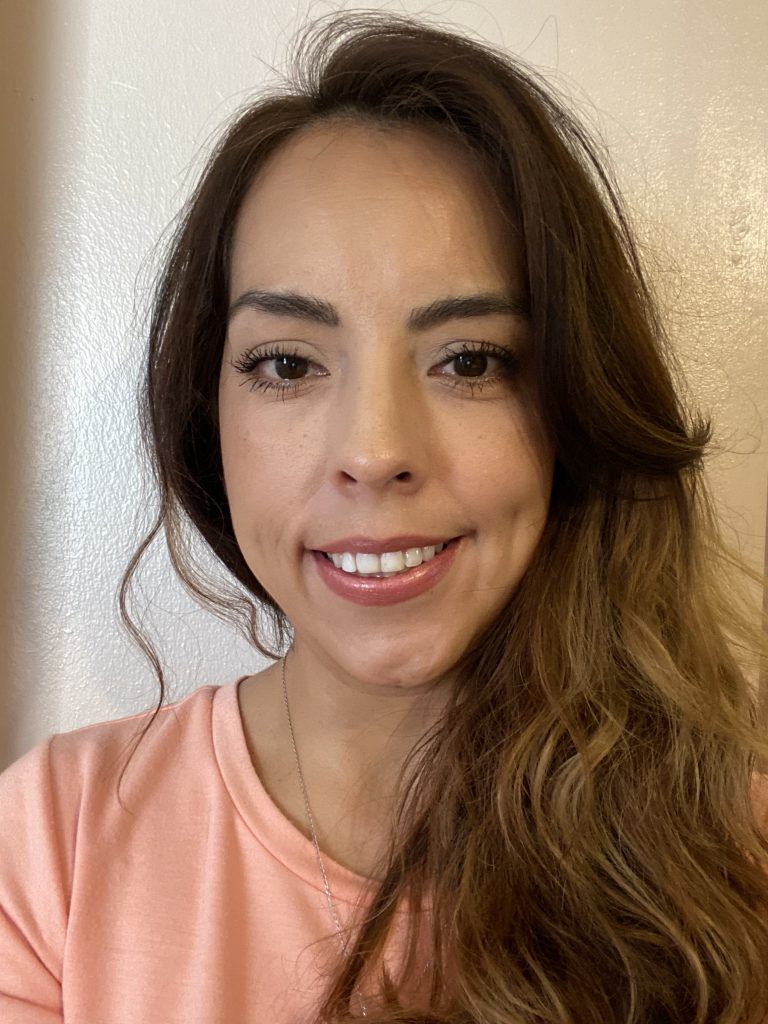
Lupita Gardner has lived in Tyler since she was 5 years old , after having been born in Mexico City, Mexico. She and her family mainly attend The Chapel of Saints Peter and Paul Catholic Church, although they also are familiar with the Cathedral of the Immaculate Conception.
She says her mother was the largest influence on her religious understanding. “My mom would always pray with us and had always taught us that. That was what I went to when I was scared. When I was upset, I would just pray.”
Gardner and her husband, whose father was a Protestant pastor, have taken pains to make decisions about their faith traditions as a couple with five children. “I really am strong in what I believe in, and so it is my husband. And so trying to figure out a way that would work was a little challenging.”
They created a home where their faith takes a central role. “We go to church every Sunday without fail unless someone’s sick or something happens. We eat meals together and pray right before meals. And after a meal, we pray before we go to bed. God has always been the main focus in our lives.”
Gardner made the decision to homeschool her children. “The original reason why we decided to homeschool them is because we wanted a program that didn’t teach just scientific ways, not involving God in it at all. I think you should have both perspectives, and you should be able to decide for yourself.
“I went to public school and it was like, ‘The world’s been around for this many billion million years ago.’ A lot of that, the science they have behind it, isn’t really accurate. They can’t really deny certain things, but yet that’s all they push in schools.”
Gardner’s faith has sustained her since she was young. Praying to God became a lifeline as she and her siblings struggled living with an abusive parent. “I always thank God that I know him and that I’ve been able to grow up knowing him, because I really don’t know what my life would be like without having that.
“There are many times when I didn’t know what was going to happen, and if it weren’t for being able to pray and ask for God’s help, I don’t know what would have happened. Growing up, [my and my siblings’] only salvation was God.”
Gardner said she believes human selfishness is at the root of many problems today. “There’s a lot of this stuff that’s wrong with the world today. It’s all people being selfish in a way, like the mother that chooses to have an abortion because it’s not the right time or because something bad happened to her, and it’s not the best situation with that partner at that time.
“When someone does that, it’s not like you didn’t know what was going to happen. If you’re able to make a decision to do something like that, you have to be aware that there’s consequences and you have to be willing to take care of that and do what’s right.
“But many people nowadays don’t want to deal with it. And it doesn’t matter whether it’s something so precious like a baby.”
“I feel like nowadays Catholics have been afraid to push people away. And so maybe [they] haven’t been as strong about saying, ‘No, abortion is wrong.’ No matter how you look at it, it is wrong. It’s not right. You should not do this.
“When you’re a little bit stronger about what you believe, people will respect you for that eventually, as you can’t cater to every little thing. To me, Catholics — the real ones — have been a little more strict on certain things.”
Gardner said some Catholics have been silent, but she appreciates those who speak out on issues that matter to her. “The church has been afraid to speak out about a lot of core principles and certain things that just shouldn’t happen: that marriage is between a man and a woman; certain things about abortion. Those things are just brushed off.
“Father Bishop Strickland, he was one of the main ones that always spoke out. And I was so happy when he actually did that, because there’s a lot of people that may just be like, ‘I don’t really know how I feel about that.’ And with everything else that they’re seeing, they’re tending to lean the wrong way.
“And the church is there to help guide us and help keep us full of grace and keep us clean and keep us headed down the right way.”
Monica Miller, Judaism
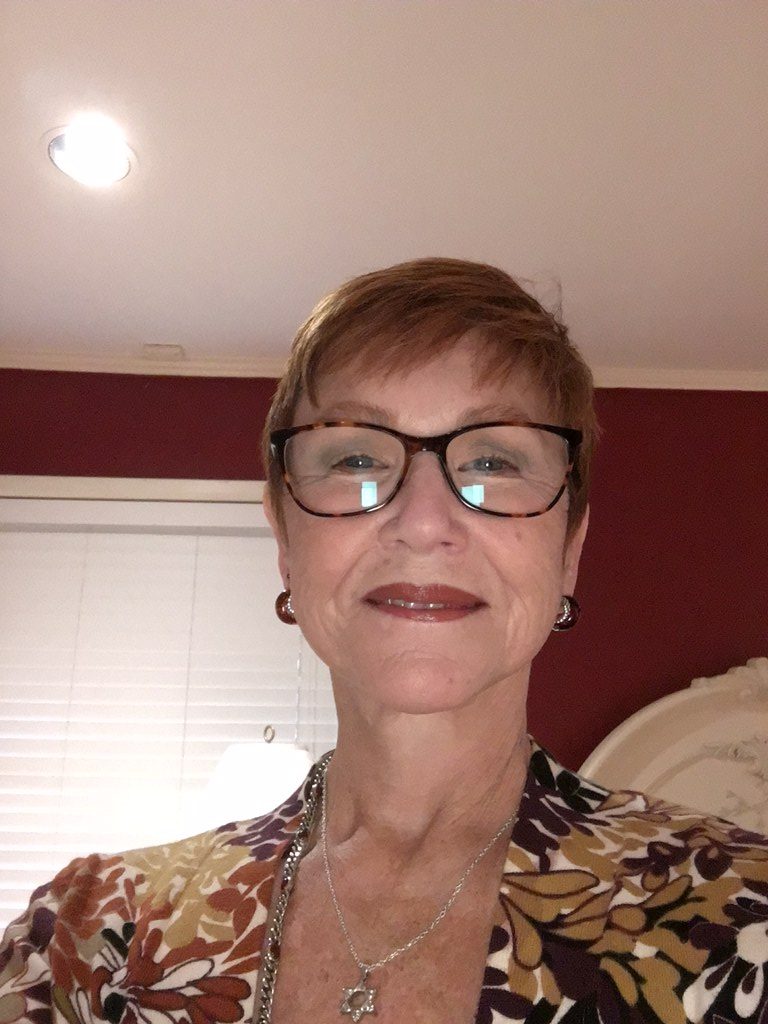
Monica Miller, 65, was born into an Irish Catholic family in Dallas, Texas. She now lives in Tyler and attends Congregation Beth El. Miller converted to Judaism as a young adult, but felt pulled to its teachings as a child.
“I was very much a black sheep. I don’t know how to describe it any other way than to tell you that gravity was pulling me in another direction, which of course upset my family, my siblings too … Of course I wanted to fit in, but it just wasn’t jiving.
“I had Jewish friends, Jewish doctors, Jewish people, and I would go to the library and read and was so drawn to this faith, particularly Reform Judaism, my denomination. My parents, of course, were very disturbed. When I was 12, it was time for me to have my confirmation, and I told him I did not want to do it.”
Miller struggled with tenets of the Catholic and Christian faith as she studied. “Beyond a belief that Jesus was the son of God, I got stuck on the fundamental original sin issue. I found it very, very hard to reconcile that.”
“I went to some Protestant churches. I tried and I read and I studied, and it wasn’t happening. The thing that really stuck with me was a very big part of the Christian scripture, which is John 3:16. That’s where belief is central in that Christian faith. And I prayed for it.
“My last year of college was a big year, and I made a bargain with God. I said, ‘I’ll go to mass every day. If this is where I’m supposed to be, set me on fire. And if (Judaism) is where I’m supposed to be, light the path.”
I talked to (my father) and I said, ‘I feel called to walk a different path. And I think that when you consider the vastness of God, and that we’re all made in his image, but we’re all different, I could not possibly think that there was only one way — only one way — to be close to God or to do God’s work in the world.’ And my father patted my hand and he said, ‘You go.’
Becoming Jewish made an instant difference for Miller. “From the moment I began my journey as a Jew, I felt more at home and at peace in myself than I ever did growing up.”
At her Jewish conversion ceremony, she chose Israela as her middle name in honor of her Dallas Rabbi, but also because Israel means ‘to wrestle with God.’ “And indeed I do,” Miller said. “And it has not stopped. When we’re seeking the right thing to do, it is never the easy thing to do.”
From her faith, Miller intends to care for others. “I hope that I make a difference. I’m meant to make a difference … I care very much that people can connect to the same kind of joy that I’m blessed with, which is fierce. It is fierce.”
Being present for people has become a spiritual practice for Miller. “The more you put yourself out there, the more dilemmas you encounter, the more human suffering you see, the more people reach out to you. People want desperately to make connection.
“There are a lot of lonely souls out there and that doesn’t scare me. I’m not afraid to get involved. So now, I’m a Jewish woman, I’m legally required to take chicken soup to sick people!
“I love the traditions of my faith. I love the prayers. I love the refreshment I experience by keeping Shabbat. But what I love most of all is the part where you show up.
Miller said in the Torah, when God called people, they would answer, “Hineini,” or “I am here, what can I do for you?” “That’s kind of my mantra,” she said.
“It’s got to be more than going and saying the prayers and then going home. You’ve got to put yourself out there. And the acts of loving-kindness and the opportunities are limitless every place I go.”
“I’m not a big person, I’m a little person, I do little-person things. But I do the heck out of them.”
Love what you're seeing in our posts? Help power our local, nonprofit journalism platform — from in-depth reads, to freelance training, to COVID Stories videos, to intimate portraits of East Texans through storytelling.
Our readers have told us they want to better understand this place we all call home, from Tyler's north-south divide to our city's changing demographics. What systemic issues need attention? What are are greatest concerns and hopes? What matters most to Tylerites and East Texans?
Help us create more informed, more connected, more engaged Tyler. Help us continue providing no paywall, free access posts. Become a member today. Your $15/month contribution drives our work.







